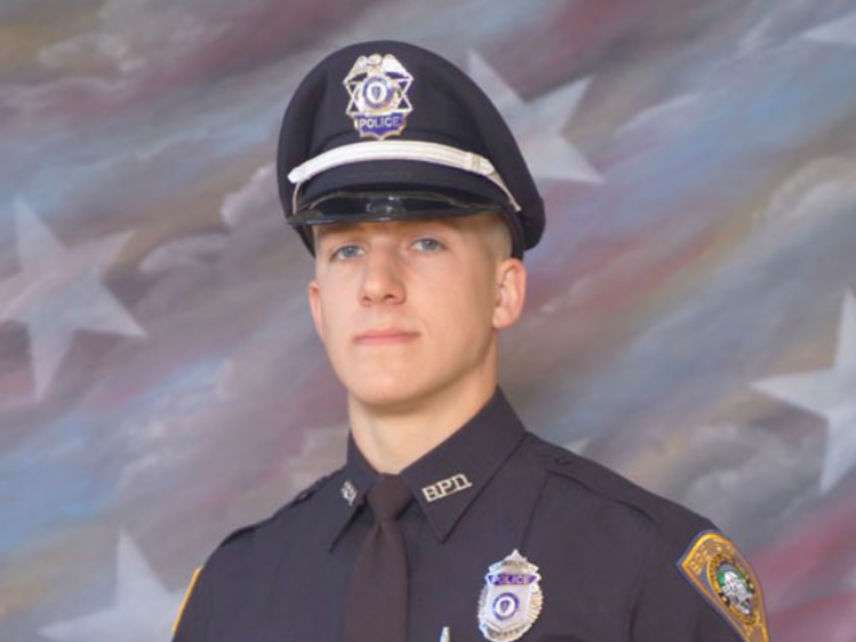Mass. State Trooper Suing After Commanders Made Him Edit Report About Judge's Daughters
Police agencies regularly demonstrate the need for radical reform.

Massachusetts State Trooper Ryan Sceviour is suing his superiors with the State Police, including Supt. Richard D. McKeon, alleging they ordered him to alter a police report involving the daughter of a judge in a DUI and drug incident.
The state police aren't disputing Sceviour's central claim, arguing the order to change the report was appropriate.
Sceviour arrived at the scene of a crash Oct. 16 on I-190 in Worcester. Behind the wheel he reported he found Alli Bibaud, daughter of Timothy Bibaud, who presides over drug cases for the Dudley District Court, reeking of alcohol with a "heroin kit" in the car, according to the Boston Globe.
Sceviour's report said Bibaud told him she had traded sex for drugs and that she was the daughter of a judge who would kill her if he found out. Bibaud allegedly offered to have sex with Sceviour for more lenient treatment.
A state trooper called Sceviour on his day off two days later and told him to report to barracks in Holden, 90 miles away, where he was ordered to alter his police report. In his suit, Sceviour alleges he was reprimanded for including Bibaud's statements in his report.
A police spokesperson responded to that by insisting, as WBUR reports, that a reprimand was not "technically discipline."
"The revision consisted of removal of what the Colonel and senior commanders felt was a sensationalistic and inflammatory directly-quoted statement that made no contribution to proving the elements of the crimes with which she was charged." a police spokesperson told the Globe.
Whether Bibaud's comments belong in the report is an open question. Between 2009 and 2014, nearly 1,000 officers in the U.S. were fired for sex crimes or sexual misconduct. It's not hard to imagine how neglecting to report an offer of sex for leniency could backfire.
More importantly, the lack of any effort to ensure that "sensationalistic and inflammatory" statements by other suspects don't appear in police reports suggests the state police was more interested in protecting Bibaud's father than the privacy of all people arrested by state police.
Sceviour's lawsuit suggests a lack of any substantive mechanism for whistleblowing, either within the state police agency itself, or elsewhere in state government. Sceviour claims the actions of his commanders and McKeon, caused "damage to his reputation, have negatively impacted his employment, and have caused him severe emotional distress."
Remember that next time police insist a bad actor within their ranks has been reprimanded.
This incident illustrates the toxicity of a law enforcement and criminal justice culture largely aligned to protect and perpetuate itself, as well as the urgency of substantive police reform and its nexus with limiting the size and power of government. It starts with the ability to hold police officers, their superiors, and other government officials accountable in systematic ways.
Real whistleblower protections, transparency in criminal justice processes, and zero tolerance for misconduct and other inappropriate behavior (and the role back in the privileges and immunities cops and other actors are afforded by law and contract) are policies lawmakers at local levels of government can deploy to transform the police agencies that are supposed to work for the same people that elect those lawmakers.


Show Comments (23)